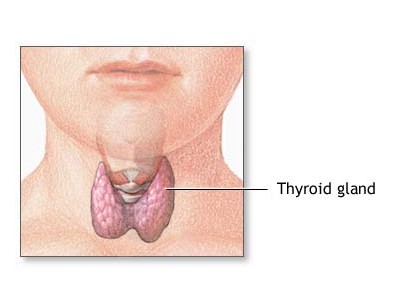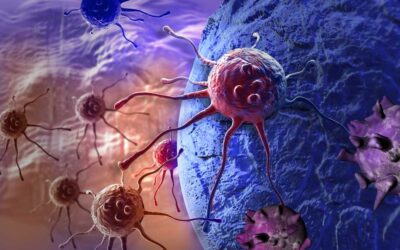Hypothyroidism affects many people. It is a condition with many potential symptoms, some more common than others. However, because everyone has different genetic makeup, nutritional inputs, exercise level, toxin exposure, etc., your individual set of symptoms will vary from those of someone else.
If you feel you have the symptoms and been told your “thyroid levels are normal”, especially if you have received no other answers for your symptoms, you may be clinically hypothyroid. Thyroid tests are not 100% even when looked at in a detailed fashion. It is really your signs and symptoms that should guide you and your doctor. “Listen to your patient, they will tell you what they have” is a quote from one of our medical school professors. It is the guiding principal and cornerstone of good medical care.
If you have been diagnosed with hypothyroidism and have been put on Levothyroxin or Synthroid (both of which contain only T4) but still have symptoms, it is likely you are still hypothyroid and need Bio-identical Hormone Replacement Therapy (BHRT) that includes both T4 & T3. Studies show that T3 & T4 hormone replacement improve symptoms better than T4 alone.
Below is a set of signs and symptoms that may help you in your understanding of hypothyroidism and personal quest for answers. And if you wish to complete a questionnaire to see if you are hypothyroid, download, complete, save email Hypothyroid Risk Questionnaire back to [email protected]. If you are unable to fill this form because you have Word 2007 or before try downloading the Microsoft Office Compatibility Pack for Word, Excel and PowerPoint Open XML File Formats.
Signs and Symptoms of Hypothyroidism – the more of these you have, the more likely it is you have hypothyroidism
Appearance
- Sallow (yellowish) appearance of skin (inability to convert carotene to vitamin A)
- Dull facial expression
- Puffy face
- Loss of outer 1/3 of eyebrow
- Down-turned mouth
- Drooping eyelids
- Swollen eyelids
- Hoarse, husky voice
- Swollen legs, feet, hands, and belly
- “Fat pads” above clavicles
- Blepharospasm (eyelid twitching or uncontrolled forceful lid closure)
Skin
- Acne
- Myxedema (thick swelling of the skin that does not change with position)
- Sparse, coarse, dry hair
- Hair loss front and back of head
- Loss of hair legs, axilla, arms (loss of hair can be regained)
- Thinned and lost eyelashes (also seen with low estrogen)
- Brittle, ridged, striated, thickened nails that are easy to break
- Rough dry skin
- Elbow keratosis
- Dry, scaly, itchy ear canal
- Excess wax in ear canal
- Slow wound healing
Constitutional
- Fatigue
- Weight gain
- Diminished memory and concentration
- Slow movement, thought and speech
- Cold intolerance
- Cold hands and feet
- Low body temperature
- Weakness
- Sleep apnea
- Insomnia
- Decreased libido
- Morning stiffness
Psychiatric – Emotional
- Depression
- Anxiety
- Panic attack
- Agitation
- Irritability
Neurologic
- Diminished / Delayed deep tendon reflex (DTR)
- Dizziness/Vertigo
- Tinnitus (ringing in the ears)
- Poor night vision
- Paresthesias (tingling, tickling, prickling, pricking, or burning of the skin)
- Carpel tunnel syndrome (can be reversed w/ thyroid)
- Headaches/Migraine
- RLS (restless leg syndrome)
Cardiovascular
- Easy bruising
- Hypertension – High blood pressure
- Hypotension – Low blood pressure
- Arrhythmias
- Decreased cardiac output
- CAD (coronary artery disease)
- MI (heart attack)
- CHF (heart failure)
- High cholesterol (also effected by DHEA, testosterone, estrogen & progesterone)
- Bradycardia
- Palpitations
- Poor circulation,
Pulmonary
- Increased risk of Asthma
Gastrointestinal
- Increased appetite
- Eating disorders
- Gallstones
- Mildly elevated liver enzymes
- Nutritional imbalances
- Constipation
Endocrine
- Hypoglycemia
- Insulin Resistance
- Type 2 diabetes
Urologic
- Erectile dysfunction
- Delayed/Diminished/Absent orgasms
- Nocturia (waking to urinate at night)
- Bladder and kidney infections
- Infertility
- Decreased libido (also secondary to low testosterone in men)
- Fluid retention
Gynecologic
- Recent miscarriage
- Menorrhagia (heavy menses)
- Painful menses
- PMS
- Menstrual irregularities
- Fibrocystic breast disease (also Iodine deficiency or estrogen dominance)
- Infertility
- Endometriosis
- Decreased libido (also in women can be due to abnormal estrogen &/or testosterone),
Orthopedic
- Arthralgias
- Joint stiffness
- Muscle pain
- Muscle cramps
- Muscle weakness
- “Osteoporosis” – thick brittle bones
Immunity
- Tendency to develop allergies
- Decreased immunity
- Decreased resistance to infections
Metabolic/Hematologic
- B12 deficiency
- Iron deficiency anemia
- Nutritional imbalances
- Hypercholesterolemia
Additional information on thyroid may be found on this site: “Am I Hypothyroid?”, “Thyroid Function“, “Thyroid Testing”, “Signs & Symptoms of Hyperthyroidism“




0 Comments